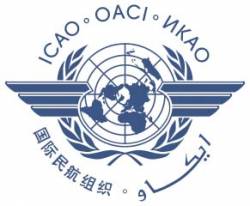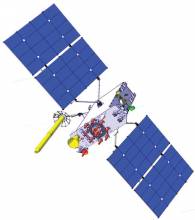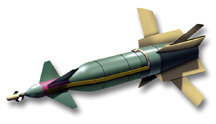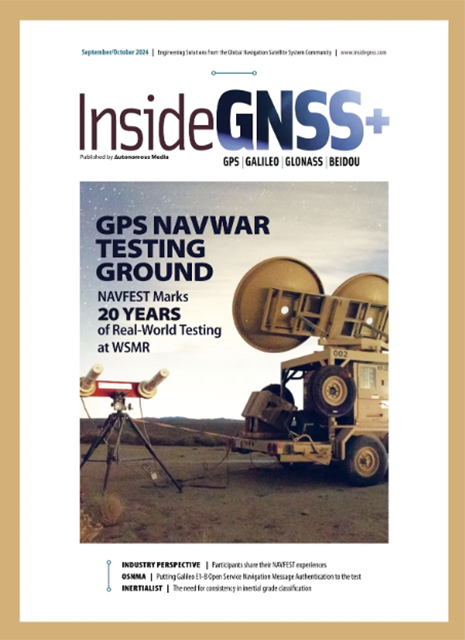Russian officials are working to develop a plan that will meet Russian President Vladimir Putin’s directive to have the full GLONASS constellation in place by 2009 instead of 2011.
Russian officials are working to develop a plan that will meet Russian President Vladimir Putin’s directive to have the full GLONASS constellation in place by 2009 instead of 2011.
Putin reportedly wants to see performance of a 24-satellite constellation that is comparable with GPS and Galileo two years earlier than the deadline established in a 2001 plan to rebuild and modernize the Russian GNSS.
Meanwhile, according to an RIA Novosti news report, Federal State Unitary Enterprise NPO Prikladnoi Mekhaniiki “M. F. Reshetnev” in Krasnoyarsk responsible for designing the modernized GLONASS satellites has received orders to build four more GLONASS-M satellites — with the possibility of increased number of launches in 2007.
Four GLONASS-M spacecraft are currently in orbit, although the two launched December 25, 2005, have still not begun transmitting. Altogether, 17 operational GLONASS satellites were in orbit as of March 27, but only 13 were currently broadcasting navigation messages.
Meanwhile, the Russian Federation and the European Union (EU) have signed a wide-ranging agreement to cooperate in space activities. Meeting in Brussels on March 10, Anatoliy Perminov, the director of the Federal Space Agency of the Russian Federation (Roscosmos), and European Commission Vice-President Günter Verheugen signed a joint document aimed at enhancing the bilateral relationship. An implementing agreement was also signed by Jean-Jacques Dordain, director-general of the European Space Agency (ESA).
Under the new accord, joint space initiatives will comprise projects of mutual interest, to be implemented through established instruments, including ESA and Roscosmos programs and the space work program of the Seventh EU Framework Program for Research and Development.
Specific areas of interest include GNSS, earth observation, satellite communications, access to space and space transportation systems, space science and exploration and use of the International Space Station, and space technology development. GNSS activities include finalizing and implementing the Galileo-GLONASS agreement and cooperation on user applications.
Copyright 2006 Gibbons Media and Research LLC





